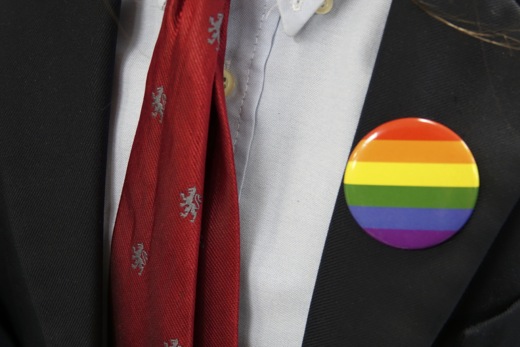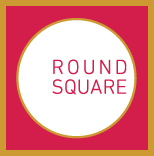LCC’s Sexuality and Gender Acceptance club
Posted: 03 June 2019

IDEALS
- Democracy
- Leadership
Discoveries
- Communication skills
- Inquisitiveness
- Appreciation for diversity
- Problem solving
- Sense of responsibility
- Tenacity
- Courage
- Self-awareness
- Teamwork
- Compassion
Age range
Secondary
Curriculum areas
Co-curricular
About
Lower Canada College’s Sexuality and Gender Acceptance club (SAGA) began meeting four years ago, and has since grown into a regular gathering for Middle and Senior School students who meet one lunchtime per week.
SAGA has three primary goals: to support, advocate and educate the student body. SAGA exists to support our students, whether or not they identify as lesbian, gay, bisexual, transgender, queer and others (LGBTQ+), and offers them a safe space to connect with each other. Instead of leading the group, staff supervisors act as facilitators.
The club’s impact is seen around the school, from rainbow flag stickers on teachers’ laptops to gender-neutral washrooms and modifications to the school’s dress code. Earlier this year, a group of SAGA members wrote a screenplay for a contest addressing bullying based on sexual orientation and gender identity. LCC’s entry, written about the benefits of support groups, was one of five winning scripts chosen from across Quebec.
Planning
Student-led SAGA groups, known by different names at different schools (such as the Gay-Straight Alliance), have developed around the world in recent decades. LCC’s club was initiated as a result of student interest four years ago.
Activity
SAGA mainly involves weekly lunch meetings, where current LGBTQ+ issues are discussed. SAGA also organizes a yearly pride event, during which the school celebrates LGBTQ+ pride with guest speakers, fundraisers for organizations that support queer youth, and presentations at assembly.
SAGA has also participated in anti-bullying contests and school advocacy depending on the student interest each year; for example, the students leading the 2017-2018 SAGA advocated to have gender-neutral makeup rules at school. Lastly, an indirect effect of SAGA is that it encourages integration of LGBTQ+ content around the school, such as in health classes or in the books available in the library.
Challenges
We are fortunate to have a very inclusive and open school. However, a few parents were concerned that if their child joined SAGA they would be the target of bullying. Fortunately, students have not reported any bullying/negative comments about their participation in SAGA, partly because the club is confidential and thus their participation is not known by other students, and our meetings are held in a quiet area of the school. Furthermore, as a school, we have normalized diversity in small ways (such as by our headmaster wearing an Ally pin, indicating his allyship to the LGBTQ+ community) and large ways (such as our pride week events). However, as some students may not feel comfortable going to SAGA meetings we cannot guarantee that we are responding to the needs of all students.
Impact
Research has shown many positive outcomes of having SAGA clubs at schools, such as students (whether or not they identify as LGBTQ+) feeling safer and experiencing less bullying and improved psychosocial well-being. Students in the club often feel empowered, are able to advocate for their needs and those of the school community, and practice skills such as empathy, community building, teamwork, and acknowledgement of diversity and differences. Students outside of the club are also exposed to new information and opinions, in a non-threatening and student-driven way. Staff at the school have a chance to get involved with SAGA, whether as a guest speaker or with more regular participation. This fosters an inclusive workplace and also celebrates our diverse staff.
Long term
SAGA seems like a permanent fixture at LCC, given that we have students who participate from grades 7-11 and staff ready to supervise. The primary, long-term outcome would be the creation of a constant, safe, confidential and inclusive space where students feel empowered to lead and participate in SAGA. Other outcomes as defined by the students are advocacy, inclusion and education.
Advice
- The advice I would give is that SAGAs should be fluid; the activities led by the club can change based on the student leaders each year, along with the engagement/reception by the general student body.
- It is important to remain flexible and empower student leadership, while ensuring the school is a safe place for students to lead.
Author: Veronica Kost (school counsellor) & Ettore Zuccheroso (science teacher), Lower Canada College and Wayne Larsen, M.A Assistant Professor and Internship Coordinator Department of Journalism Concordia University
